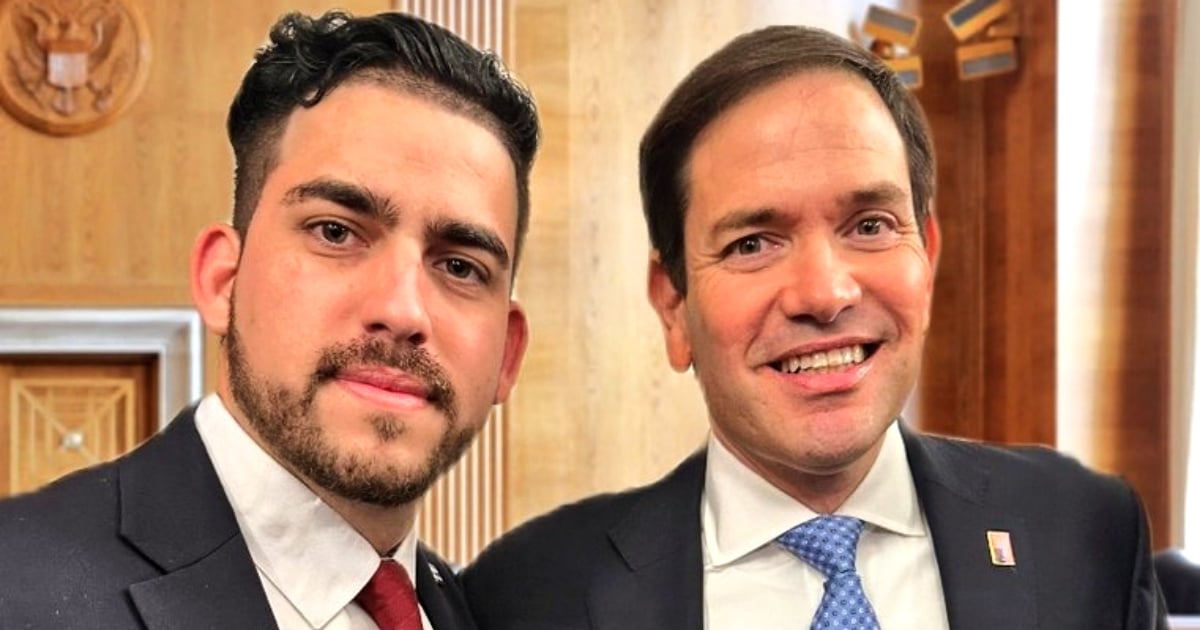
Related videos:
The recent stance of the administration of Donald Trump to withdraw support for Volodimir Zelenski and align with the views of Vladimir Putin to justify his invasion of Ukraine is generating a strong division of opinions among Cubans, both on the island and abroad.
The debate has intensified particularly on social media, where activists and citizens express a range of emotions from indignation to justification for the implausible shift experienced by the Trump administration in foreign policy and U.S. national security doctrine.
The Cuban activist Félix Llerena joined the criticism against the Secretary of State, Marco Rubio, reminding him of his historical speech in defense of Ukraine and his earlier labeling of Russia as a global threat.
"How many times did you not tell us, @SecRubio, that we needed to defend Ukraine from Putin? Today I felt just like you in the Oval Office. Do a favor for the Rubio we know and admire: resign," Llerena wrote on X.
Besides Llerena, the Cuban-Irish journalist Annarella O'Mahony described the meeting between Trump and Zelenski as a "mafia trap," highlighting the arrogance of the Republican administration.
His social media post responded to a tweet from Spanish journalist and politician, Hermann Tertsch, in which the Vox member defended Trump's stance, something that O'Mahony found contradictory given Tertsch's critical position towards the Cuban dictatorship, an ally of Putin.
“There was no attack: there was a mob-like trap, arrogance, and ignorance on the part of the President and Vice President of the US. Beware of alliances with Trump, as they can reflect very poorly on him. He admires and supports Putin, and Putin supports the regime in Cuba and other totalitarian regimes,” he told the European Parliament member known for passionately denouncing the Cuban regime in Brussels.
On her part, the activist and journalist Iliana Hernández also sparked mixed reactions by criticizing Trump's stance, which she described on her as "Putin's dog" due to his apparent submission to Kremlin interests.
Her stance triggered an avalanche of comments, with some users lamenting the abandonment of Ukraine by the U.S. and others justifying the decision on the grounds that Washington should not continue financing a war that "does not belong to them."
Concern among Cuban activists following the unprecedented altercation at the White House
The recent context has been marked by several key events that reflect the shift in Trump's foreign policy.
The tense meeting at the White House between President Trump and Vice President J.D. Vance with Zelenski ended without any concrete agreements, deepening concerns about the future of U.S. support for Ukraine.
During the meeting, Trump avoided labeling Putin as a "dictator" and reaffirmed his intention to renegotiate the terms of any military aid to Kiev.
The events take place as the White House shows signs of having a "new foreign policy doctrine" that emphasizes an isolationist approach and questions the U.S. commitment to European security.
In this context, Rubio, who in the past strongly denounced the Russian aggression, has now softened his rhetoric, which has drawn criticism for his apparent change of stance based on the position he has taken in the new Trump administration.
Other factors that have influenced Trump's decision include his views on the UN and his recent vote against a resolution condemning the Russian invasion. Additionally, reports have revealed that the Republican is exploring mining agreements with Ukraine, which could explain part of his “aggressive” diplomatic strategy.
Days ago, the Cuban opposition leader José Daniel Ferrer warned about the implications of this shift in U.S. foreign policy, alerting that the weakening of support for Ukraine indirectly strengthens totalitarian regimes like that of Cuba.
In this regard, Ferrer urged the international community to stand united against Putin and his allies, reminding that any concession to Moscow only benefits dictatorships that oppress their people. His stance resonated with sectors of the Cuban diaspora who are concerned about the lack of clear leadership in the defense of global democracy.
This debate highlights the increasing polarization within the Cuban community regarding the international policy of the U.S. and reveals the discomfort of many at seeing figures like Marco Rubio aligning himself with a narrative he previously rejected.
Meanwhile, the war in Ukraine continues its course, now without the financial support of Washington and in an increasingly uncertain geopolitical landscape.
Filed under: